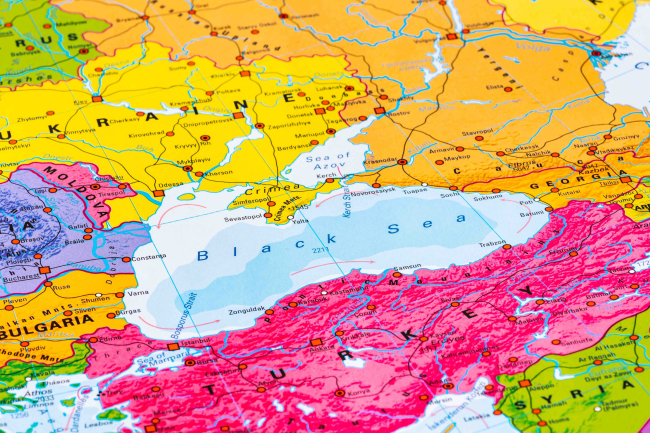
Practical information
An open discussion organized within the framework of the partnership "Schwarzenbergplatz Forum" between the Austro-French Center and the French Embassy in Austria

To many observers, the relationship between the EU and Africa over the years has shown an increasing “fatigue” with mutual recriminations and misunderstandings standing in the way of a future oriented, mutually fruitful cooperation. Trade relations have stagnated, and African countries have increasingly looked to other partners, mainly China, to provide much needed investments. Migration, the issue of access to Covid vaccines, and most recently the war in Ukraine have been added to the list of irritants. Both sides have become increasingly aware that a new approach was needed. This perception set the tone for the latest edition of the EU – Africa summit, which took place in Brussels on 17/18 February after a hiatus of five years. On an optimistic note, the outcome document defines a joint vision for a renewed partnership.
What is different from previous meetings is the EU’s willingness to go beyond declarations and put a substantial investment package with a price tag of €150 on the table as part of its new Global Gateway initiative. Even if this is at least partly motivated by the perceived need to counter China’s advance into Africa, it still indicates a clear willingness to work on concrete projects in the areas of energy, transport and digital infrastructure, sustainable growth and jobs creation, health and education.
The question is how this new vision will be implemented, and even more so to what extent African partners see it as a credible offer from the European side. Five days after the summit, Russia invaded Ukraine, the world entered a new ‘dis’-order. We will look at possible changes in European Africa-policies and what Africa’s outlook might be. France will be looking at the lessons from their turn as chair of the EU, while Austria is preparing a comprehensive Austrian Africa strategy. We want to discuss how the relationship and its prospects are perceived on both sides in light of the last Summit outcome and what will be needed to overcome the manifold obstacles to implement this new agenda.
19h00 Opening
Gilles Pécout, Ambassador of France to Austria
Dietmar Schweisgut, General Secretary , Austro-French Centre for Rapprochement in Europe
19h10 Interview
Toni Haastrup, Senior Lecturer International Politics , University of Stirling, Co-editor of " Handbook on EU-Africa Relations" , Routledge
19h20 Panel discussion
Thierry Vircoulon, Associate Research Fellow, Sub-saharan Africa Center, Ifri
Stéphane Gompertz, Ambassador (ret.), Member of Advisory Board, The Bridge Tank
Irene Horejs , Former EU Ambassador to Niger and Mali
Margit Maximilian, Journalist, ORF Austria
Moderation : Georg Lennkh, Member of the Board, Bruno Kreisky Forum for International Dialogue
Discussion in English

Related Subjects
Other events

Affirming European Security in Ukraine and the Black Sea Region
European security has been challenged in 2022 with the full-fledged invasion of Ukraine by the Russian Federation.

Post-war Europe: How to Redefine a Security Architecture Within a New Transatlantic Framework?
A new European security architecture has to be built. The question is: will this happen with or without Europe? The US President, Donald Trump, who returned to the White House a little more than two months ago, and the President of the Russian Federation, Vladimir Putin, have initiated talks to put an end to the war in Ukraine, with the possibility of Ukraine ceding territory to Russia being raised.

Doing Politics in African Cities: Actors, Causes and Forms of Urban Social Mobilization
From Maputo to Nairobi and from Lagos to Dakar: recently, African cities have been the theatre of mobilizations by groups of young protesters.








